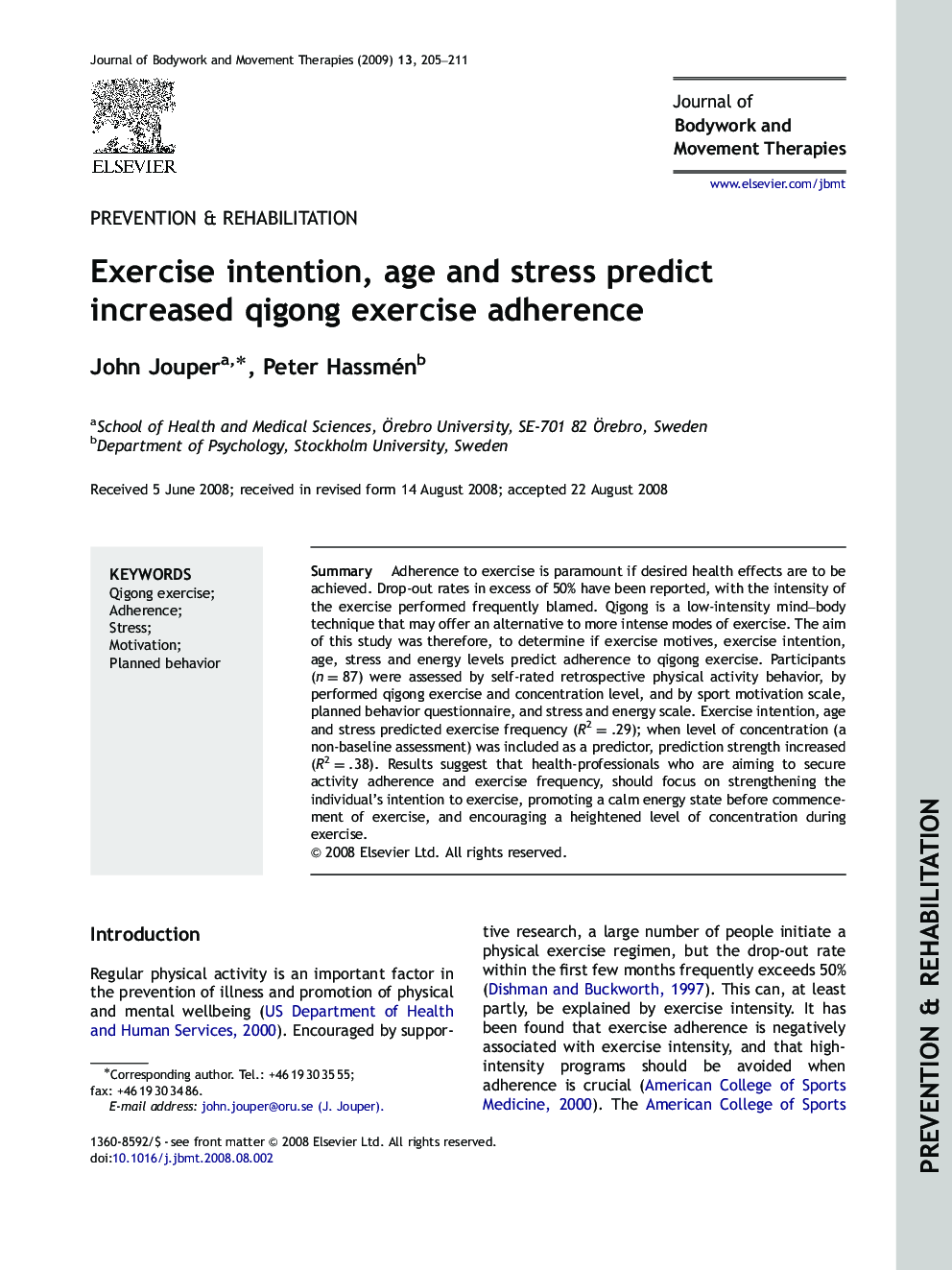| Article ID | Journal | Published Year | Pages | File Type |
|---|---|---|---|---|
| 2619445 | Journal of Bodywork and Movement Therapies | 2009 | 7 Pages |
SummaryAdherence to exercise is paramount if desired health effects are to be achieved. Drop-out rates in excess of 50% have been reported, with the intensity of the exercise performed frequently blamed. Qigong is a low-intensity mind–body technique that may offer an alternative to more intense modes of exercise. The aim of this study was therefore, to determine if exercise motives, exercise intention, age, stress and energy levels predict adherence to qigong exercise. Participants (n=87) were assessed by self-rated retrospective physical activity behavior, by performed qigong exercise and concentration level, and by sport motivation scale, planned behavior questionnaire, and stress and energy scale. Exercise intention, age and stress predicted exercise frequency (R2=.29); when level of concentration (a non-baseline assessment) was included as a predictor, prediction strength increased (R2=.38). Results suggest that health-professionals who are aiming to secure activity adherence and exercise frequency, should focus on strengthening the individual's intention to exercise, promoting a calm energy state before commencement of exercise, and encouraging a heightened level of concentration during exercise.
